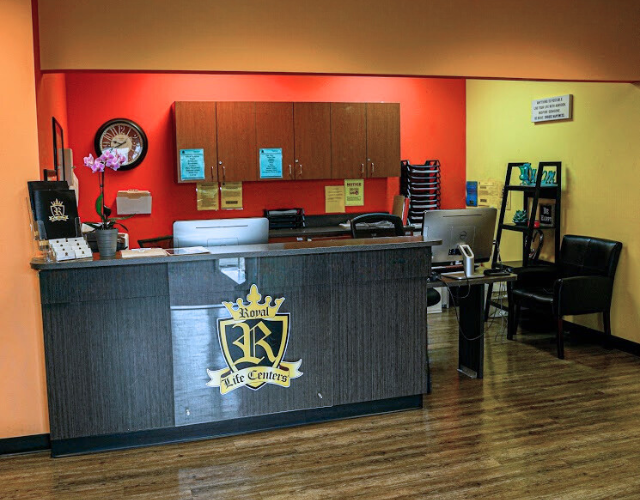Key Takeaways:
Alcohol detox should be medically supervised. The post stresses that quitting alcohol abruptly (“cold turkey”) can be dangerous and that detox is safest in a treatment setting with monitoring through withdrawal stages.
Detox is the first step—not the whole recovery plan. Detox clears alcohol from the body so you can start deeper treatment (therapy and longer-term recovery work).
Care may include meds, therapy, and holistic supports. The article describes options like medication-assisted treatment (MAT), evidence-based psychotherapy (e.g., CBT), and holistic approaches (mindfulness, yoga, breathwork) as part of the continuum after stabilization.
Ongoing care matters, especially given Washington’s alcohol burden. It notes alcohol misuse is a significant issue in Washington and emphasizes follow-on levels of care (inpatient, outpatient, aftercare/sober living) to support lasting recovery.
Question:
What is alcohol detox in Washington State like?
Answer:
The blog explains that alcohol detox in Washington State is best done in a medically supervised setting because withdrawal can be unpredictable and, for some people, dangerous—especially when stopping abruptly (“cold turkey”). Detox is framed as the essential starting point of recovery: it clears alcohol from the body and helps stabilize symptoms so a person is physically and mentally ready to begin meaningful treatment. The guide describes what typically follows detox, including options such as medication-assisted treatment when appropriate, evidence-based therapy (like CBT) to address the thinking/behavior patterns tied to drinking, and holistic supports (e.g., mindfulness, breathwork, yoga) that strengthen coping skills and overall well-being. It also emphasizes that recovery continues after detox through the level of care that fits someone’s needs—residential inpatient treatment for structure, outpatient treatment for flexibility, and aftercare or sober living to maintain progress. The article adds that Washington faces notable alcohol-misuse challenges, reinforcing the value of accessible detox and ongoing support.
Alcohol detoxification should be handled in a medically supervised environment rather than attempted alone. Withdrawal can trigger anything from anxiety, insomnia and nausea to more serious complications like hallucinations or seizures, depending on drinking history and severity.
Detox is only the first phase of recovery. Once the body is cleared of alcohol, the real work begins: addressing underlying patterns, psychological dependencies, and emotional triggers that contributed to addiction. Continued care through inpatient or outpatient rehab, therapy, and aftercare programs is crucial to build sustainable sobriety.
Maybe you’ve been told to explore alcohol detox in Washington State, but don’t entirely know what that looks like. Detox is a straightforward process that can carry a lot of fear and expectation around it. It’s true that detox comes with withdrawal symptoms, but there are ways to have a better experience. Surely, the number one method is by completing detox in a medical facility. At The Haven Detox, we provide comprehensive detoxification. We can help you understand the process of detoxing, but more than that, we’ll safely get you through the experience. Once you’re on the other side of withdrawal symptoms and detox, you can continue rehab by diving into the reasons behind your addiction. Continuing with rehab is the best way to prevent relapsing back into drinking.
What Is Alcohol Detox?
Alcoholism detox is the process of removing the toxins of alcohol from your body. Because it can be incredibly dangerous to attempt detoxification alone, medical detox is completed in a monitored environment to ensure safety. How long detox lasts depends on the person. If you have a longer history of alcohol abuse, your detox will likely take longer. However, some people are able to complete a 3-day alcohol detox, where they’re physically sober at the end.
Detox is one part of the early stage of treatment, which also includes inpatient alcohol rehab. At our alcohol detox center, The Haven, we also treat the root causes of addiction. It’s best to continue with rehab to learn to make sobriety a daily reality. Markedly, along with alcohol abuse, we also help those with drug addictions, mental health disorders, and behavioral disorders.
Is Alcohol Addictive?
Without a doubt, alcohol is extremely addictive. In fact, you might not have known that it is one of the most addictive substances. Over time, a person who abuses alcohol will experience alterations in their brain chemistry that keep them returning to alcohol. At that point, it’s a need, not a want, and quitting on their own is incredibly difficult. It’s true that alcohol dependency (and alcohol use disorder) develops over time, as people develop unhealthy habits around drinking. However, it can happen quicker than you think that you reach the point where you’re trapped.
Once you’re dependent on alcohol, turning your situation around is not a simple task. Often, it requires outside support. Unfortunately, detoxing from alcohol alone can be dangerous due to adverse reactions during withdrawal. So overall, quitting is challenging because of how addictive alcohol is.
Alcohol Addiction Statistics
The majority of people don’t understand the severity of alcohol abuse, making it easy to go heavy on drinking without knowing the consequences. People all around the world, from all backgrounds, of all ages, struggle with alcohol addiction. In the United States, roughly 28.9 million people 12 and older have an alcohol disorder. This number reflects the most severe form of alcohol abuse, which is alcohol use disorder (AUD). But it takes time to develop a full-blown alcohol addiction, even if you’re regularly abusing alcohol. Thus, the number of people who are on the road to developing an addiction is much higher.
Why Is It Important to Get Help for Alcohol Detox in Washington State?
Alcohol abuse is an issue that doesn’t always get the attention it requires. This is because there are still misconceptions around whether alcohol use can lead to dependency. People often believe they’re exempt from becoming dependent on alcohol as long as they quit while they’re still in control. However, alcohol immediately starts working in the brain and body to create pleasurable effects. The more you drink, the more you’ll desire to keep drinking. Getting help for alcohol addiction is incredibly important, especially in the early stages. As mentioned, detoxing from alcohol alone is dangerous and can lead to major health complications. For example, Wernicke-Korsakoff syndrome is a serious brain condition caused by a thiamine deficiency. Unfortunately, it is one of the risks of detoxing from alcohol alone and can cause lasting cognitive challenges.
Even if you don’t enter a full alcohol rehabilitation program, please make sure you seek help for detox. Complications can arise if you try to detox on your own, which only a medical facility with trained professionals can protect against.
Reach Out for Help With Addiction and Co-Occurring Mental Health Disorders
Are you struggling with substance abuse and mental illness?
Royal Life Centers at the Haven Detox is here to help you recover. Because We Care.
How Does Alcohol Detox Work?
The best way to overcome the fear of detox is to better understand it. The process is generally short, typically spanning between 4 and 10 days. Of course, the exact timeline will depend on your unique factors. Early on, after denying yourself more alcohol, you’ll start to experience withdrawal symptoms. These will continue to increase until the peak period (usually around day two or three) and slowly taper off. Symptoms may include flu-like effects, restlessness, anxiety, high blood pressure, cravings, and insomnia.
Unfortunately, withdrawal symptoms are uncomfortable and sometimes painful, but they can be reduced with comfort medications. One major advantage of detoxing in a rehab facility is the ability to receive medication. Yet not everyone wants to go the route of medication, and that is entirely your right to choose. Your detox will be well-informed based on the conversation you have beforehand.
After detox, you can transition into the next steps of rehab, where you’ll learn skills and tools to avoid alcohol relapse. Here’s what to expect during detoxification (as well as rehab, if you choose to continue on).
Initial Assessment
Before you begin treatment, you will have an initial assessment with our team. To ensure you gather all relevant information, you’re welcome to bring family or friends with you. During this meeting, you will discuss your alcohol use history, related health challenges, and your preferences (such as medication). Additionally, you’ll discuss how long your time in rehab should be. Every guest of The Haven Detox receives a tailored service plan detailing their specific needs and requests.
24/7 Care and Support
Your time detoxing will pass quickly because of our professional team, making it a comfortable and easy experience. Not only will you have 24/7 safety monitoring, but you’ll also be relaxing in our comfortable facility with state-of-the-art amenities. Your every discomfort will be addressed, along with ensuring your system is responding well to detox.
Medication-Assisted Treatment (MAT)
Medication-assisted treatment, or MAT, is an option that can make the recovery experience much smoother. Comfort medications are ones that can be administered by our medical staff to ease withdrawal symptoms during detox. They help to reduce the effects of alcohol withdrawal so you can relax and have a more positive experience. Additionally, after detox, we can help you find long-term medication to manage your sobriety. Post-acute cravings may occur down the line, but medication helps prevent relapse.
What Happens After Alcohol Detox?
After you complete detox, we invite you to stay in our center for the full rehab experience. Why should you continue rehab? After detox, you’ve achieved a base level of sobriety in your body, but your mind will still desire alcohol. To truly work towards lifelong sobriety, you need to develop skills to avoid alcohol when temptation arises. We will teach you relapse prevention, trigger management, and help you heal from the past with trauma-informed counseling.
Here are the levels of care rehab is divided into, which you can transition through after detox.
Inpatient Alcohol Rehab
Inpatient rehab for alcohol is an early stage of care that can last weeks or months, depending entirely on you. During this level, you will live in The Haven Detox center for intensive, around-the-clock support. The focus of inpatient treatment is inner healing and fundamental sobriety skills.
Outpatient Alcohol Rehab
Once you’re ready for more independence, having learned the foundational skills, you can move into outpatient rehab. During this level, you will move out of our center and instead attend programming during the days or evenings. Major emphasis is placed on preparing you for full self-sufficiency in the near future.
Aftercare for Alcohol
Once you complete inpatient and outpatient rehab, you are a graduate of The Haven! Instead of going directly back to “normal life,” the transitional period is called aftercare. We encourage our graduates to stay connected to support through our Sober Living housing, support groups, ongoing therapy, and community resources. We’re happy to answer any questions about how aftercare sets people on a path of lasting sobriety.
What to Look for in a Washington State Alcohol Detox Center
If you’re ready to explore alcohol detox in Washington State, we urge you to look for a reputable provider with knowledgeable staff. Additionally, it’s important to work with a treatment center that has comprehensive programming for continuing care. We would love to be that rehab facility that leads you towards recovery! Truly, our desire is to see you improve your life through intentional recovery programming.
We want our guests to have a truly transformative experience at The Haven Detox, not just detoxification. For this reason, we encourage our guests to continue with rehab to develop a solid sobriety foundation within themselves. However, detoxification on its own is still best completed in a medical facility to ensure protection and safety. If you have any hesitations about continuing with rehab after detox, please give us a call!

Emer Simpson, SUDP Medical Reviewer
Emer Simpson, SUDP, provides her clinical expertise to review and approve all content appearing on our blogs. In her role as a Substance Use Disorder Professional (SUDP), Emer has over 10 years of experience working in the field of addiction and recovery.
- Alcohol Detox in Washington State: Everything You Need to Know - March 2, 2026
- How Washington State Rehabilitation Centers Can Transform Your Life - January 26, 2026
- How Washington State Rehab Centers Support Long-Term Recovery - January 19, 2026


















